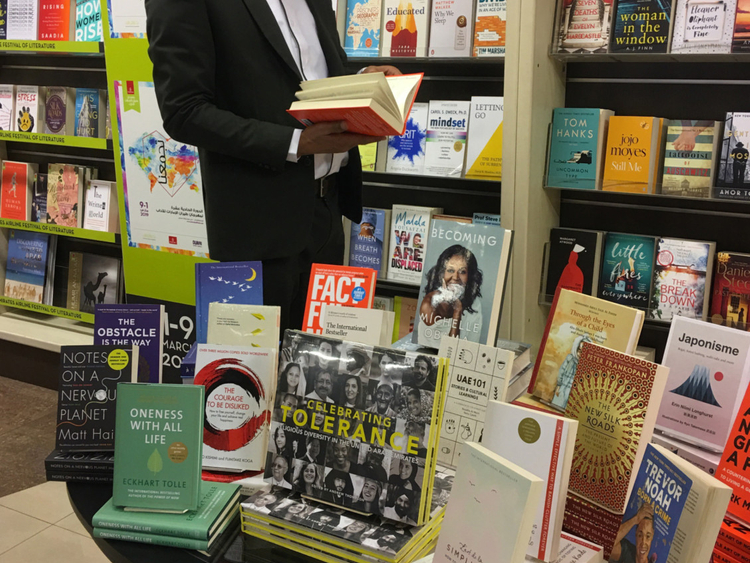The slow (imminent) death of books and bookstores
The slow (imminent) death of books and bookstoreson May 13, 2021

Once more unto the breach, dear bibliophiles, once more, stiffen the sinews, summon the blood and come to the rescue of your beloved books and bookstores, now under assault by their arch-enemy — e-books, e-The slow (imminent) death of books and bookstores commerce and sundry e-snakes in the grass like Amazon and other retail behemoths.
Independent bookstores are not altogether extinct, not yet, but these days you find them where they lie — on their deathbed, soon to pass into oblivion. Only if you’re old enough, would you remember the wondrous sense of enchantment you felt when you entered one and got lost there.
And the store didn’t need to have been bohemian, say, like Shakespeare & Co. in Paris, which opened in 1922 in the Latin Quarter and went on to become a gathering place for then aspiring expat American writers like Ezra Pound, Ernest Hemingway and F. Scott Fitzgerald. Nor did it need to have been, say, like Strand in Manhattan’s East Village, which lasted through the Great Depression and later became a haunt for New York’s intellectually inquisitive elite, who leisurely perused its 2.5 million new, used and rare books.
Nor, for that matter, did it need to be like Kramer Books here in Washington, which opened its doors during the bicentennial celebrations in 1976 in the peppy, never goes to sleep Dupont Circle neighbourhood, a bookstore at whose attached cafe you could always find a friend, already buzzed on his third drink, ready to tell you why he chooses Kerouac over Kafka.
The bookstore needed only to have been, well, just a garden-variety bookstore, by definition a treasured part of every community’s quotidian life. Indeed, yes, a town is not a town without a bookstore. Alas, indie bookstores have shrunk and then shrunk some more, from 36,000 in 2007 to less than 18,000 today — and still counting.
Even those dreadful book-chains found in malls, like Barnes and Noble, Borders and Crown Books, have closed their doors for good. Just desserts, I say. These megastores, masquerading as bookstores, not only sought to make money selling books but also sought to put indie bookstores out of business.
The death of bookstores, of course, follows close on the heels of the death of books. Books as we have known them for centuries. Books that, as we hold then in our hands, engaged us a kind of complex gestalt in our tactile sense. Books where we encountered, there on the printed pages, Dickens’s Pip, Dostoevsky’s Alyosha, Proust’s Swan, Salinger’s Holden and countless other literary personages whose sorrows we found ourselves relating to more than the sorrows of the neighbour next door.
Even before the invention of the printing press in 1440, the book had been of us, if as a clay tablet in third millennia BC Mesopotamia or as a scroll made of papyrus reed in Ancient Egypt. But it was movable type that gave us our modern conception of the book, the vehicle by which ideas began to be transmitted through print, and exposure to the printed word began to affect the way we viewed objective reality, the way we formulated our own individual conjectures on meaning and on our place in that meaning.
Consider how, in this regard, it was movable type, as Marshall McLuhan reminded us in his iconic work, Gutenberg Galaxy: The Making of Typographic Man (1962), that “enabled men to see their vernacular for the first time and to visualise national unity and power in terms of the vernacular bounds”.
As human beings we are, very simply, created by Him to read. Recall here how the opening sentence in our Holy Text, the Quran, begins with the command, “Read ... “ and the opening one in the Old Testament begins, “At the beginning was the word ... “ And we read words in books, not as electrons floating in the ether summoned at the command of a keyboard.
Thus, the death of books demands of us, I say, no less than a reorientation of our human consciousness.
In 1992, The New York Times ran an essay, “The End of Books”, in which the novelist and public intellectual Robert Coover wondered uneasily whether print could survive the age of “video transmissions, cellular phones [and] fax machines”. In 2007, the London Times declared that “the slow death of the book may be with us”.
And last year, Nicholas Negroponte, Chairman Emeritus at MIT’s Media Lab, told us, with seeming glee, that books — those clunky, whatchamacallit thingos with grungy spines — are not only dead, but that the new technology “has liberated the word from the static confines of the page”. Yes, the electronic age, it appears, has driven the printed page into extinction.
A great prince in the grave lies.
No doubt you can hear me, dear bibliophile readers, howling, along with Joseph Conrad’s Kurtz, “Oh, the horror, the horror!”
Books and bookstores
books and bookstores commerce
Frontlist
Frontlist India
Frontlist India news
Frontlist Latest
Frontlist Latest news
Frontlist News
The slow (imminent) death of books and bookstores



.jpg)






.jpg)

.jpg)
.jpg)
.jpg)
.jpg)
.jpg)
.jpg)










Sorry! No comment found for this post.